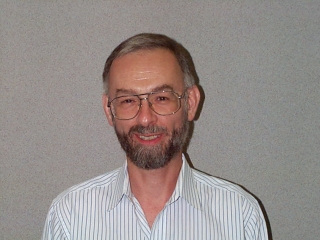
Christopher was CUUG President from 1998 to 2000.
I believe that it is again time for me to put something extra back into the club. CUUG still has a future and I want to help. What CUUG offers that a FAQ, manual or web site doesn't is human interaction, networking and friendliness. The "stuff" isn't really that important. Involvement and participation are what make CUUG work.
The *nix world has changed radically and as we take on the task of evolving CUUG to its next form, our greatest challenge will be to increase the basic "clubbiness" and friendliness in our meetings and activities while decreasing the demands on key volunteers.
Our club works only because of volunteers. Dues never cover the cost of services provided by the club. We clearly need to get more members involved.
Among members, there is good agreement on current problems and future goals but more diversity on solutions. Renewing the spirit of CUUG is more important (to me) than mere fiscal survival.
The grand challenge for the CUUG 2006-7 board will be to "make it so".
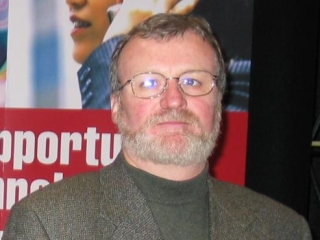
Greg first joined the Board of Directors in 2002. He was last year's Secretary.
I first started with computers in my high school math club in the late 60s when computer were room sized behemoths only affordable by governments and large corporations. The club built a simple one with very low tech components, but it tweaked my interest. I have been either studying computer science or working in IT since then.
My first paying job after university was with Univac 1100 mainframes where I migrated to the systems programming area. In those days (mid 70s) Univac shipped the source code for the 1100 OS and we applied source patches and regenerated the OS from source. Mainframes were lucky to stay up for a week so I spent a lot of time busting box sized OS dumps and developing fixes to buggy Univac code (sounds a lot like "open source" doesn't it). That era ended in the late 80s and by then I had moved on to more senior IT roles which eventually included planning for, operating, and supporting UNIX type environments.
Around 1990 I joined CUUG for the 1st time just to expand my knowledge of UNIX and meet folks who did what I used to do with mainframes. I remained a CUUG member for 5 or 6 years. I started tinkering with RedHat Linux 5.1 when it come out and got more deeply involved with UNIX when I joined Hewlett Packard in 1999 and had to administer HP-UX boxes to run and demo HP OpenView. I rejoined CUUG at that time and have been a member since, and on the board for the past 2 years. I left HP in 2003 and since then have been doing some HP OpenView consulting and also packaging my own systems monitoring solution using open source tools.
I think CUUG should strive to be the best organization for professional UNIX
support folks. We should be a forum for networking and a means for UNIX
focused professional development. I encourage all members to let me and the
other board members know how we can shape CUUG to better meet your needs as
a UNIX professional.
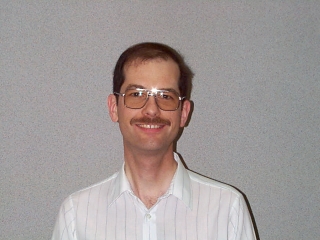
Alan first joined the Board of Directors in 1998. He has served in a number of executive roles in the past.
My first UNIX-related experience was with Multics, which I enjoyed
playing with while in university. I started using UNIX itself as a
grad student at the University of Calgary, where I was involved in
the Jade research project. Some of the technology from this project
was transferred to Willowglen Systems' new state-of-the-art SCADA
system, through which I learned more than anyone should care to know
about writing operating systems to run on Sun hardware. Experience
showed that this is not a viable long-term strategy, and that one is
better to stick with common standards, most notably UNIX. Following
my SCADA career, I did some oil-and-gas-related UNIX consulting.
I spent five years working for Hewlett-Packard and its spin-offs,
and am now the Java development supervisor for Kelman Technologies' Seismic
Data Processing division. I have been a member of CUUG since about
its second year of existence.
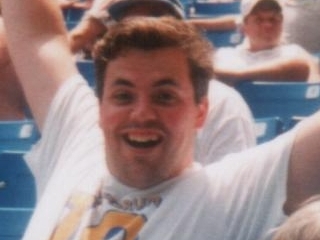
Niek is volunteering for the Board of Directors for the first time this year.
As long as I can remember I have been around computers. My father owned a small software company in the Netherlands, and the first systems I laid my fingers on were beasts that had ring core memories and punch card readers.
I started programming computers when I was about 10, plucking away on some Wang mini. Choosing to study computer science was a no-brainer, and there I first came into contact with Unix-like systems.
After finishing the university I joined a company that distributed SCO Unix, and after 14 years of work in the Unix/Linux/security business (ending up being the manager of training and support) I decided I needed a new challenge, and emigrated to Canada. A fresh start, didn't know anyone here, but felt right at home.
Of course I ended up in the same line of business (guess it's in my blood), and now I work for a company based in Calgary and Edmonton that focuses on Linux and network solutions for small and medium sized business.
Oh, and in case you were wondering, I'm 38 years old.
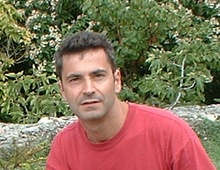
Yves first served on the Board of Directors in 1998, and was President in 2004/2005.
I have been a contractor with SollerS, specialising in UNIX, in varied positions such as tech support, programmer, and sysadmin since 1993.
I joined CUUG in 1995 when I came to Calgary and served as a director in 1998, and for the past two years.
In a time where a lot of communities are becoming virtual and geographically
spread out, I would like to see CUUG focusing on UNIX in Calgary, and
helping to strengthen our local community of users, hobbyists, vendors, and
professionals.
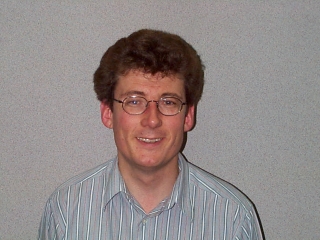
Roy first joined the Board of Directors in 1998. He has served in a number
of executive roles in the past, including as last year's President.
He is an Engineer and former I.T. manager for the City of Calgary
Waterworks.
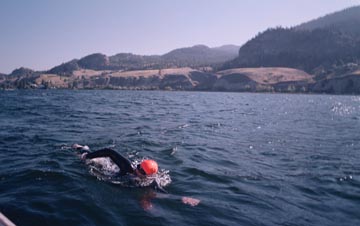
Peter was on the Board of Directors in 2001.
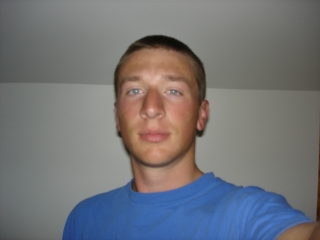
Kent is volunteering for the Board of Directors for the first time this year.
I am new to the Linux/Unix world and am learning new things every time I boot up the operating system. I was introduced to the Knoppix 3.9 live CD about a year ago. I thought it was a great idea to have a whole operating system on a single CD, and beneficial since I use an XP laptop mostly. I used the Knoppix CD during my first year of engineering, mostly to ssh into the university Sci Linux system and complete my programing assignments from home. Later I downloaded and burned the Knoppix 4.0.2 DVD which has many improvements. Soon after I got some help installing Debian on a home desktop machine.
Recently, I repartitioned my laptop as a dual boot Debian / XP machine. I had a "hiccup" during this process and the Knoppix CD let me access the XP partition and backup my documents and this gave me a sense of security before fixing the problem. You may remember I asked the general discussion list for suggestions on trying to fix the partitions.
Linux has helped me as a student. CUUG helped me when I had problems. This fall in second year engineering, some of my classmates may see what I'm doing and want a similar setup for themselves. I now know how to 90% help them.
That's several very good reasons why I to want CUUG to thrive.
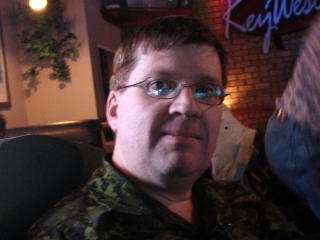
Mark first joined the Board of Directors in 1998, and has served as Chairman in the past.
I first discovered UNIX about the same time as its greater and cruftier progenitor MULTICS many years ago in university while studying physics and astronomy. I liked its combination of simplicity and power in a fairly smooth design that aided rather than hindered its users and developers.
Many years later both myself and UNIX are still around, though both are not what they used to be. Unfortunately UNIX has had the worst of what the years bring and now challenges and even exceeds MULTICS in some places for byzantine layered legacy design. I have also acquired many layers and like UNIX could bear to shed a few. Now my profession is mostly hardware as a field service technician, but my work does sometimes involve using and fixing UNIX computers and their distant kin like CISCO routers.
I have followed the Free and Open Software Revolution through GNU, Minix, Linux, and now Debian. I am glad computing is returning to its roots of sharing information in the tradition of the scientific and engineering professions, as building on what others have done and peer review is critical to correct, rigorous, and proper progress.
I strongly support CUUG's dedication to promoting and advancing UNIX, as UNIX even with its layers of somewhat dubious additions is still the best operating system we have. It is still a powerful tool, and many are working to backfile its lesser parts with better redesign, and develop new polished refinements to add to its power.
I have served on CUUG's Board of Directors from 1998 Jan to Jun, and
as Board Chairman from 2000 Jun to 2003. I am also deeply involved
with keeping the Computer Resource Centre running and working towards
improving it for CUUG's members. I would be proud to serve on our
Board for the next year.
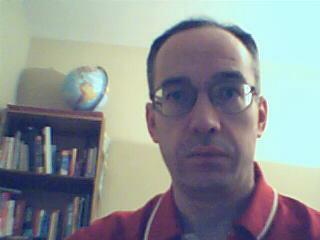
Dick is volunteering for the Board of Directors for the first time this
year.
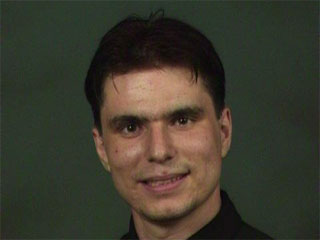
Brian first joined the Board of Directors in 2004, at which time he served as Secretary. He was also last year's Chairman.
I was born into a computing society. From my earliest memories, there were always replacement keys and large, white round hard disks floating around the house. When I finally saved up a few dollars at about the age of 11, I got my first PC: an original IBM XT (not a clone!) with 256K of RAM and a 10MB hard drive. I learned Pascal and Intel Assembly that year.
At around the age of 15, I was on my second computer, an 8Mhz 8088 with a 14.4Kbps modem. I'd stumbled across a UUCP node called pepper.cuug.ab.ca during my BBSing days, and shortly thereafter joined as a CUUG member (under my dad's name, richardg) for the first time. This 8088 went through a lot of changes. During high school, I was learning C, and was unable to find a free C compiler. I'd played around with Linux with some friends, and needed something similar that would run on my horribly obsolete computer. AST's Minix ended up being the solution, and thus began my foray into the Unix world.
I've now played with Unices of many varieties, mostly x86 based, but
some SGI and Sun hardware too, as well as my iBook running Mac OS
Panther. My domain, cubik.ca, is about providing Open Source solutions
to business, based heavily on Java and Linux-based servers.
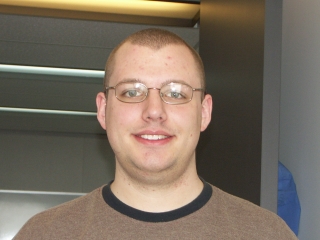
Anthony was last year's Vice President.
I've been exposed to computers for most of my life, but I wasn't exposed to UNIX until I started at university. Once I started programming seriously, the limitations of Windows forced more and more of my activities onto UNIX until I didn't use anything else.
I have experience with AIX, Solaris and FreeBSD, but I primarily use MacOS X, OpenBSD, and Linux. I've tried most of the popular Linux distros, but I've settled on Debian for now.
When programming I primarily use one of C, Java, or Python, but I am familiar with a number of other languages because various projects have required them. I consider being accustomed to learning languages more important than any language in particular.
I graduated from university in December 2005, and I have also
had the opportunity to do some development work in the industry.
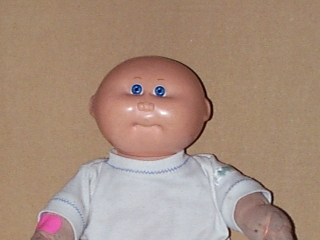
Dale is volunteering for the Board of Directors for the first time this
year.
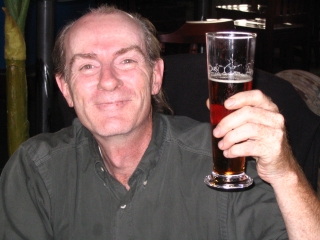
Stephen joined the Board of Directors in 2005, and served until his
resignation in November, 2006.
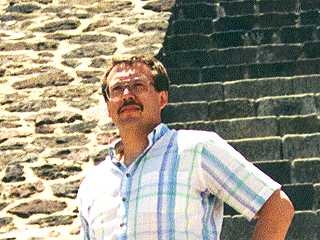
Terrell joined the Board of Directors in 2003, and served until his
resignation in November, 2006. He served as Vice President from July, 2006,
until his resignation.